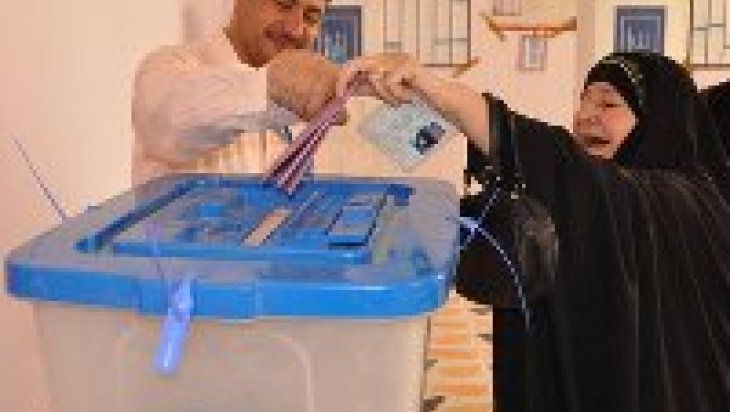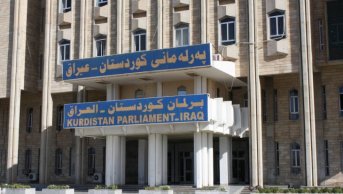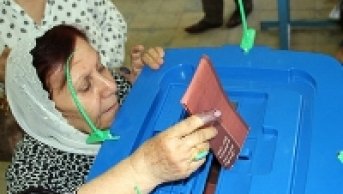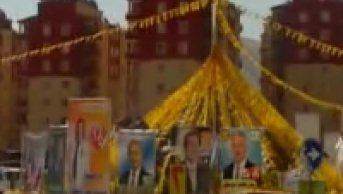Elections in Anbar and Ninawa: Will New Sunni Leadership Be Born in Iraq?

Iraq again had a voting day for provincial councils in two Sunni Arab provinces on June 20. A dozen of the war-torn country’s 18 provinces voted in their own elections two months ago.
However, officials had delayed elections in Anbar and Ninawa for security reasons, as the two provinces had seen some of the largest rallies in a months-long wave of Sunni protests against Prime Minister Nouri al-Maliki’s government. Though there were heavy security concerns, the elections were held in a relatively calm atmosphere. Almost 2.8 million Iraqis were eligible to vote in the more than 1,200 polling centers in the two provinces. To win seats on provincial councils, 28 political blocs in Ninawa and 16 in Anbar ran in the election. In these elections, Ninawa had 39 open seats and Anbar had 30.
According to press reports and some observers’ declarations, there were no big security incidents on election day, except some small attacks to fear voters. However, there have been contradictory reports on voter turnout. Although some sources claim that turnout was relatively high in comparison with other provinces that had completed their elections on April 20, some say turnout in Mosul, the provincial capital of Ninawa, was really low and there was not even more than 15 percent in some districts of the province. Perhaps one of the most significant reasons for this was the vehicle ban. In big districts and city centers in particular, there was a strict vehicle ban -- except for ambulances, police and army vehicles, and a small number of cars permitted by electoral authorities -- in order to prevent attacks on election centers. However, during the afternoon of election day, the curfew for vehicles was lifted to facilitate the arrival of voters to polling centers.
According to pre-election public opinion polls, no party or coalition would get enough votes or seats to determine who will be the next governor and head of the provincial councils. However, the forthcoming councils will be different than the last period in each province. In 2009, Ninawa was controlled by the al-Hadba Coalition led by the al-Nujaifi brothers. When this coalition was born, it placed anti-Kurdish authority over Mosul after Iraq was invaded. Al-Hadba, which received the highest percentage of vote in the 2009 election -- split up during the last 4 years. Strong coalitions that were part of al-Hadba broke away from the ideology of the al-Nujaifi brothers’ coalition and were a part of this recent election, though.
However, the importance of the local elections is not limited to the province’s internal dynamics. For example, in Ninawa, there is strong competition between Sunni Arabs whose priorities are really different from one another. As Ninawa has disputed areas between the central government and the Kurdistan Regional Government (KRG), some Arab coalitions have made solving this problem a priority and don’t accept Kurdish rule in this territory. However, the strongest coalition, the United National al-Hadba Gathering, has political plans that go beyond the province’s borders.
It is a very well-known fact that the winning coalition of the latest general election in Iraq in 2010, the Iraqi National Movement (al-Iraqiya), split and its leader, Iyad Allawi, lost his power. Even now, as Allawi’s popularity decreases, critical figures of al-Iraqiya plan to replace his position. Usama al- Nujaifi, the speaker of Iraqi Parliament, is the strongest candidate to replace Allawi.
As the election in April 20 indicates, al-Nujaifi’s coalition got more support beyond his traditional sphere of influence, especially in Baghdad. However, if al-Nujaifi wants to be named leader of the Iraqi Sunni Arabs he needs more. Therefore, Anbar and Ninawa are his new key political targets. He needs to repeat his success in Ninawa and strengthen allies in Anbar. So far, most of the strongest Anbar tribes have signaled that they would support new Sunni leaders, as they could create a balance against Maliki’s power. However, Maliki has his own cards. There are several small coalitions somehow supported by Maliki that could get some seats in provincial councils. Even though there is strong anti-Maliki sentiment in these two provinces, it is still important that local Sunni coalitions exhibit behavior that sides with the government. Since tribalism is a strong factor in Anbar, local interests can be more important than nationwide interests. So far, Maliki has used this old mindset successfully for his own gain. The election in Saladin showed that building a strong coalition among local tribes and nationwide political coalitions is not an easy task.
After the invasion, it seems as if all provincial council elections in Iraq serve as a pre-election poll for the general elections. The latest election on April 20 indicated that Maliki’s third term is in danger. Probably a coalition of Sadrists and the Islamic Supreme Council of Iraq (ISCI) led by Ammar al-Hakim will win against Maliki, and they will determine the next prime minister of Iraq. However, elections in Ninawa and Anbar will show that Sunni Arabs of Iraq could create a new and strong leadership for the next elections. If a-Iraqiya’s success will be repeated, Iraq has a chance to build up a more stable country. Thus, the last election in Anbar and Ninawa holds great importance beyond both provinces’ borders.









